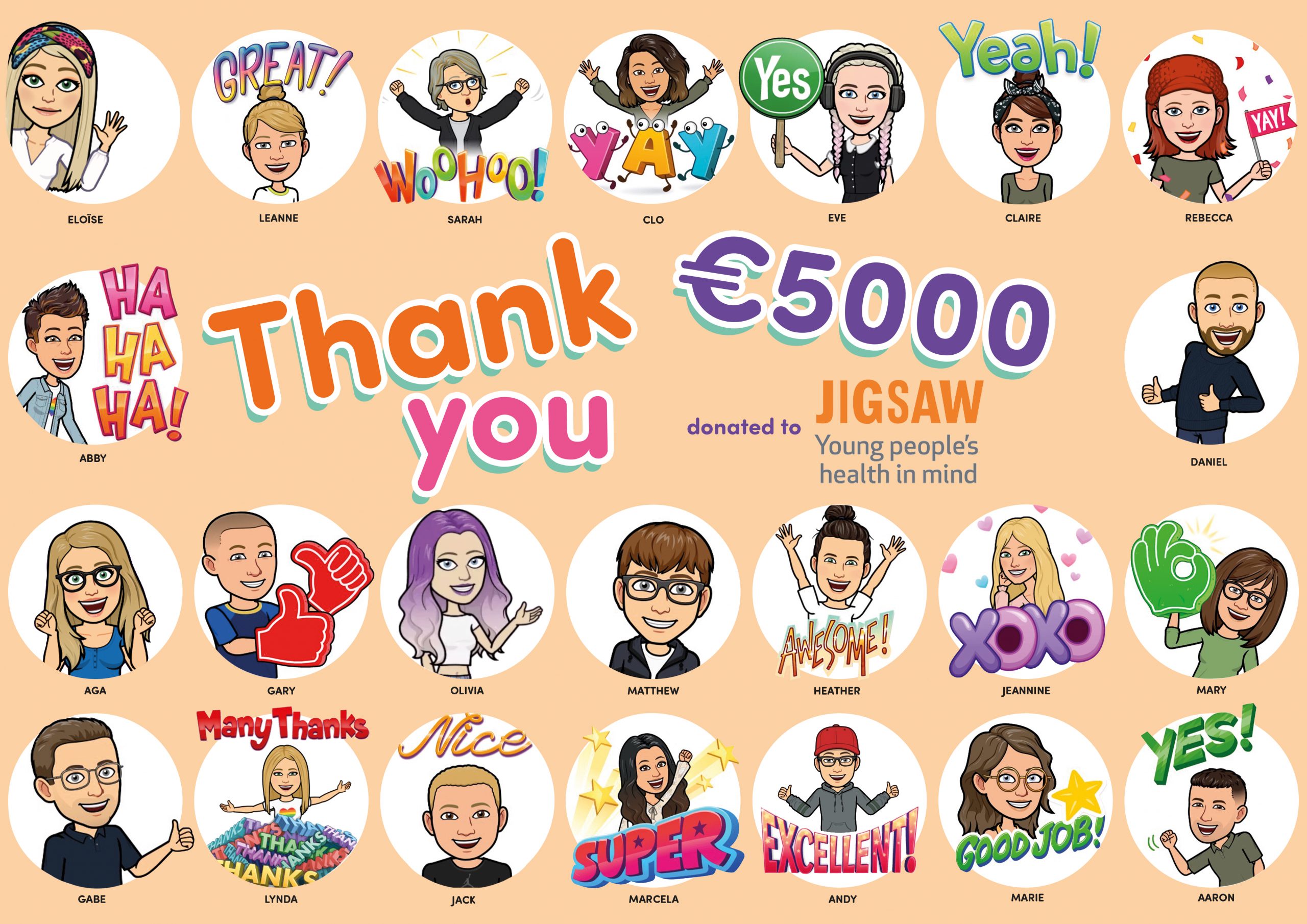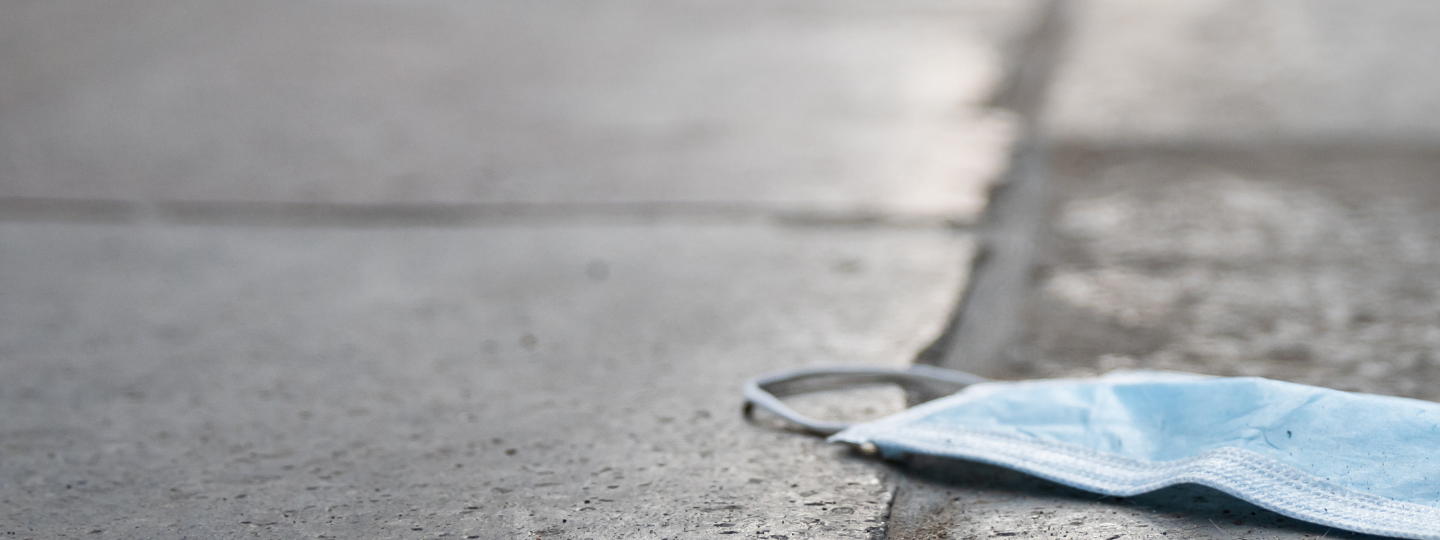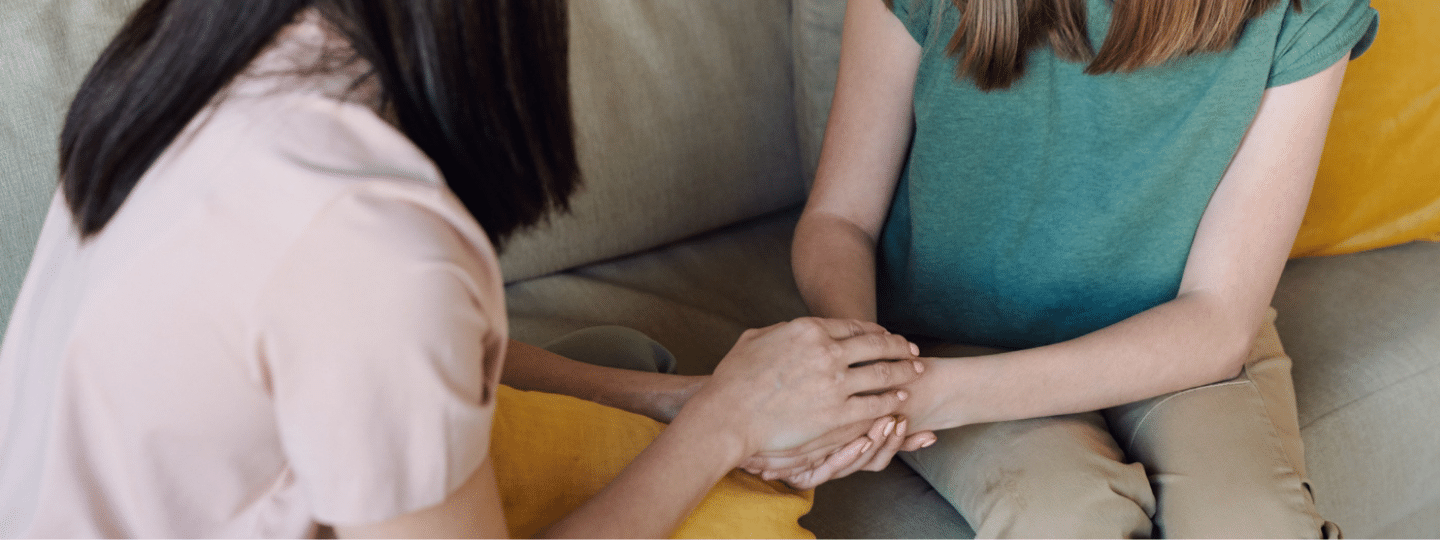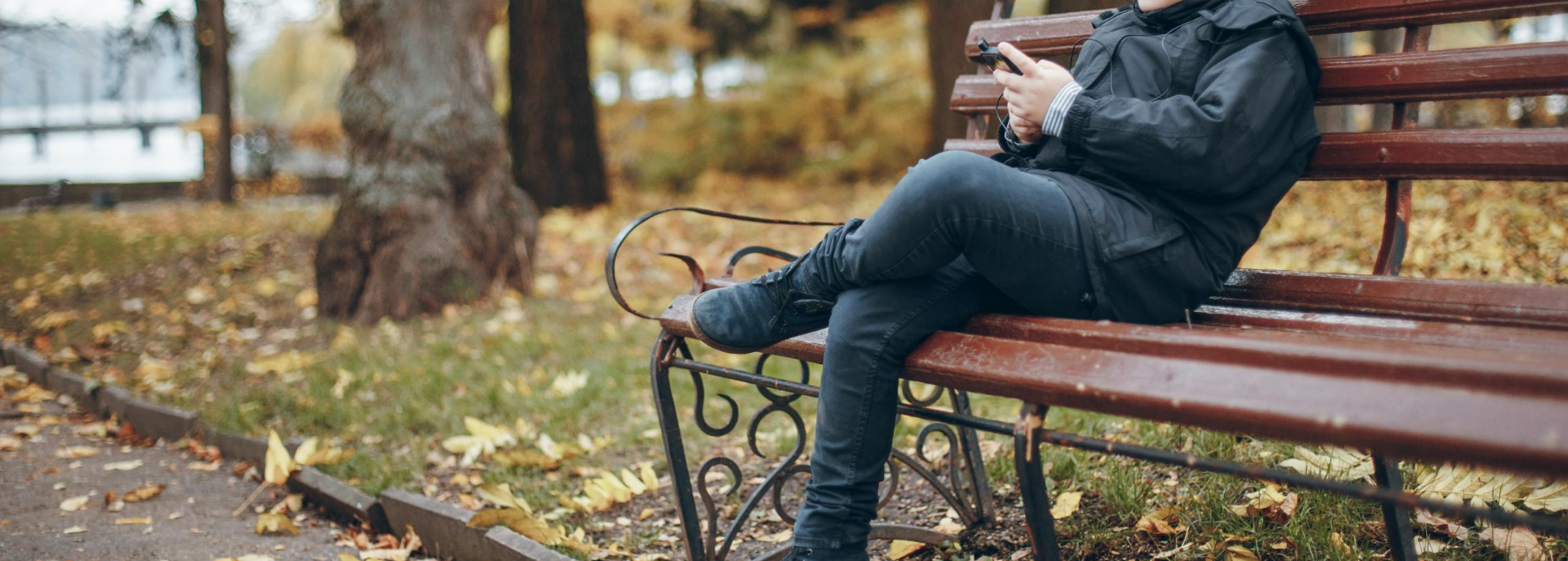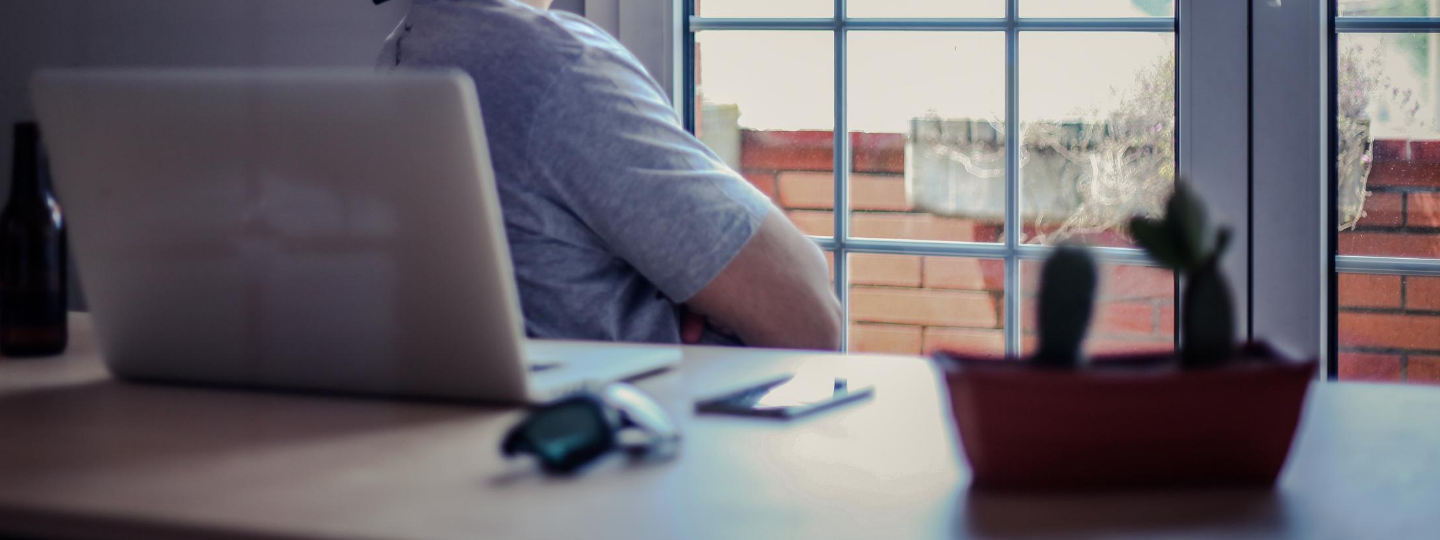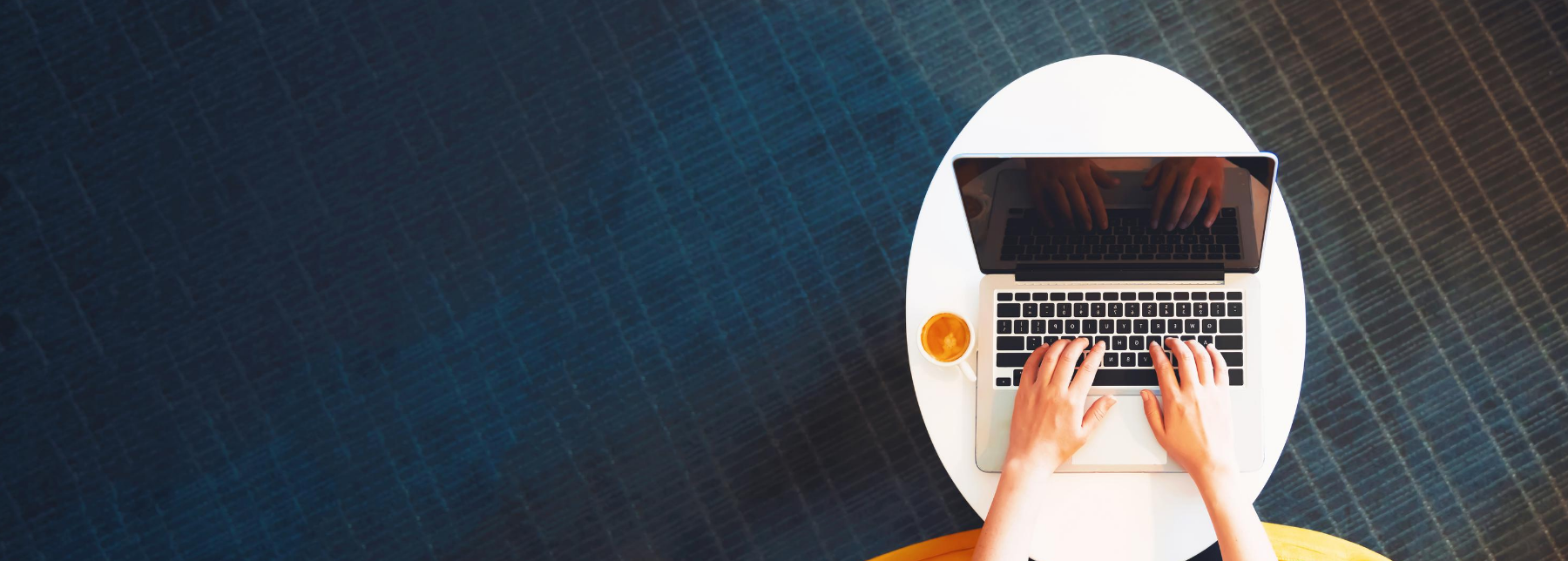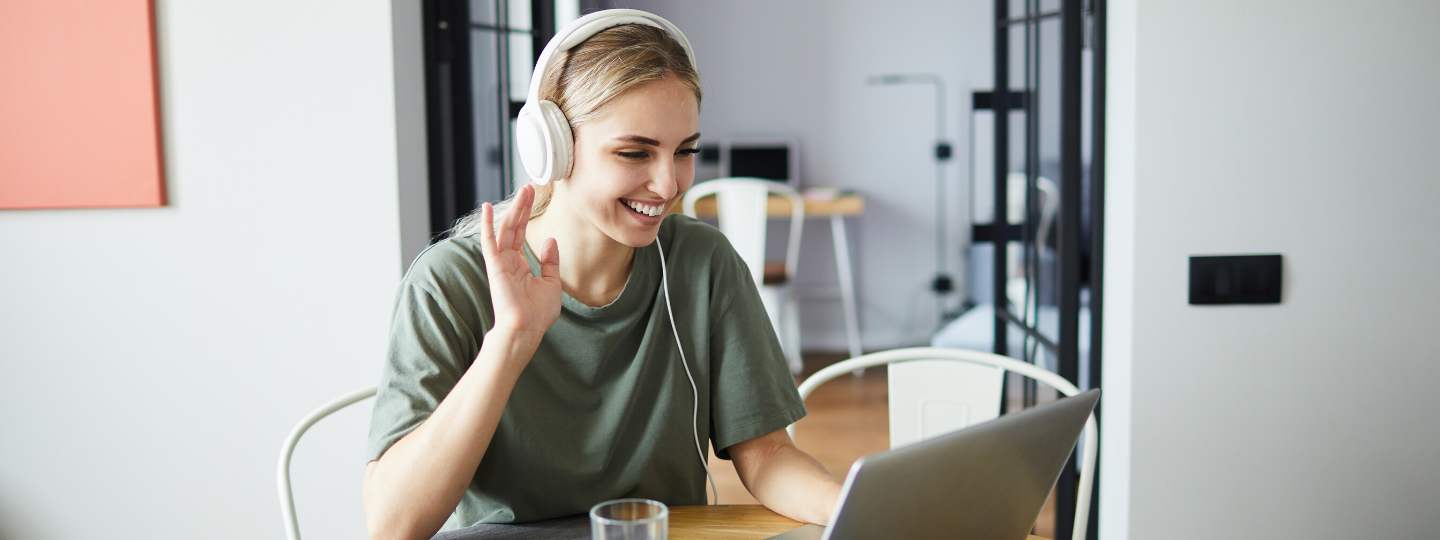Happythreads.ie, the healthcare clothing company, have made an amazing donation of €5,000 to Jigsaw, as their chosen charity for the month of June.
Month: June 2020
Emily’s story: Living with an essential worker
Emily, 18, a Jigsaw volunteer from Donegal gives us her story: As the daughter of an essential worker, I’ve come to recognise that quitting time is non-existent these days for some workers.
Dinner time is rarely a shared occasion. As I write this, she’s on phone call number two of the day, on her day off. This is the new normal for myself, and a lot of other young people living with an essential worker during this pandemic.
Dealing with the stress of it all
For many young adults in Ireland over the past few months, there has been additional stress added to the fact that they are living through a global pandemic. For some, almost overnight, they have gained a new responsibility, not only for themselves but for siblings and other family members too, because their parents have been occupied with helping to fight the ongoing crisis. For myself, as well as trying to keep on top of college work, I have been looking after my five younger siblings. This includes doing washing, tidying up the house and making sure they are all fed and watered, as well as checking in to make sure they are ok with their schoolwork. This has been stressful and frustrating at times, but overall very rewarding to know that the pressure is taken off my mammy somewhat when she gets home from work in the evenings.
I have found a few different ways of working in order to help myself and the others in my house as much as possible. My hope is that by sharing them, I can help other young people that find themselves in the same situation as myself. They include:
Planning
Even if it is just a basic list of things I need to do the next day, writing a list always helps me to stay motivated and keep going throughout the day to get as much done as I can.
How to address self-harm
As a parent or guardian, hearing about young people harming themselves can be really alarming and difficult to understand.
If you suspect that your young person is harming themselves, there is a lot you can do to support them.
How to talk about porn with young people
With advances in technology, pornography has become more and more accessible to young people. It is no longer confined to the top shelf of the newspaper shop, but can be accessed anywhere, anytime.
Although it might be awkward, we need to be having conversations with young people about porn and the impact it can have.
Jonathan’s aunt on how Jigsaw helped him
Jonathan* is a teenager who was referred to Jigsaw by his GP. Below, Jonathan’s aunt talks about how Jigsaw helped him deal with anxious thoughts and find ways to look after his mental health.
Jonathan’s mother was drinking, and from time to time in hospital with her mental health. His dad was the stable parent in the relationship, but we lost him after a tragic accident. His mother couldn’t help her addiction to alcohol, so she was open to me fostering Jonathan. He came to live with me at the age of seven and his first few years were great, but as he got to puberty things started to slide. It broke my heart when his friends stopped knocking and he started isolating himself.
He’s a really intelligent young fella and likes reading. After our first big conversation about how he was feeling, he left one of his books, The Fault in Our Stars, on the hall landing with a note that said, ‘Read the first page’. He was trying to tell me something, but he hadn’t the words. I knew that something was not right.
One day I got a series of texts from him in school. I could tell that he was anxious. When I collected him that day, he got distressed and spieled off all the things that were upsetting him. I like to take action, so we visited my doctor who referred Jonathan to Jigsaw.
Cybersafety and young people
There are countless media stories about the perils of young people being online. Ironically, a lot of these stories are good ‘clickbait’ and give a false sense of what they are actually doing online.
Young people are online earlier these days communicating through many different devices. Even if you don’t live in a ‘connected’ household, they could be accessing the internet with friends or elsewhere.
Youth talk. We listen.
Creating a future solution for youth mental health and wellbeing.
On 25 June, 2020, Jigsaw, the National Centre for Youth Mental Health and HSE Health & Wellbeing are co-hosting a unique online event, giving young people across the country the opportunity to contribute to youth mental health policy and planning for Ireland into the future.
“Youth Talk. We Listen” brings together members of Jigsaw, HSE Health and Wellbeing, Healthy Ireland and over 80 young people to identify solutions and to speak to key stakeholders and decision-makers about how best to support and promote youth mental health and wellbeing.
Ask Jigsaw: Loss of confidence
I’ve always been an anxious person but over the past year I have noticed myself it has gotten worse due to certain experiences. I never had a lot of confidence in myself and this is showing a lot more now and family and friends have said it to me which makes me break down each time.
Over the past few number of months my confidence has declined hugely both as a person but also confidence with my body image as comments have been passed. The constant thoughts of ‘I’m worthless and useless’ run through my mind nearly everyday when I look at myself.
Since I was younger I always put on a brave face and always had a smile on my face just to meet the expectations and perceptions that people had of me, but I’ve come to a point now where I cannot physical do it anymore, it was all to please other people!
Overthinking is another thing my mind is constantly going at 100 miles an hour. I always wanted to make an appointment and to speak about this in person but every time I do talk about or even think about it I completely break down. I just want to try and fix this because it has affected relationships and aspects of life hugely as I am isolating myself from the people I love but unfortunately I just don’t know how so, it would be great if you could give me some advice and ways I could overcome this!
Thank you!
-Flower 21
It sounds like there’s been a lot going on under the surface and it’s become too much to keep in anymore. While it can be hard to hear from other people that they’ve noticed you don’t seem as confident, they must really care about you and want to see you feel more comfortable in yourself.




